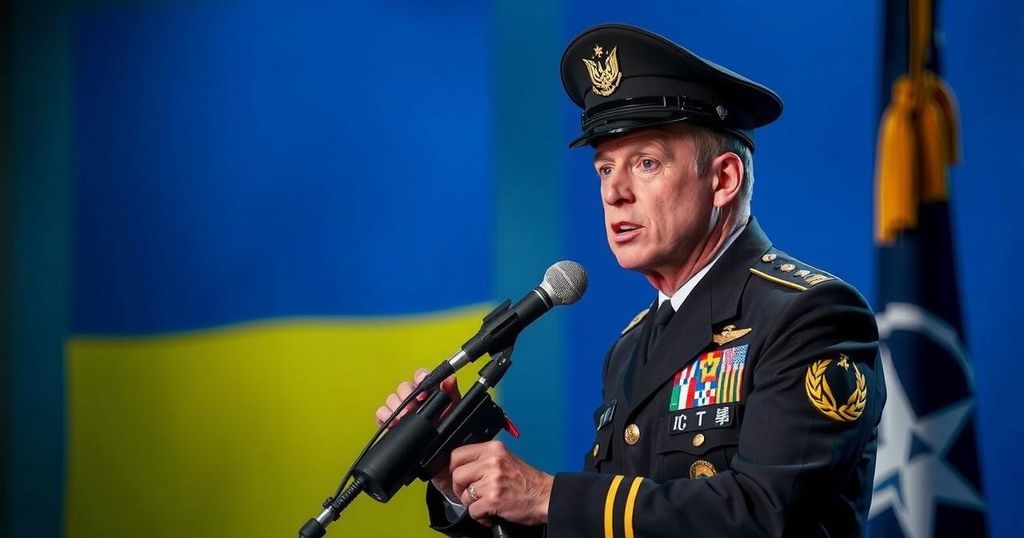World news
ASIA, BORIS JOHNSON, BUDAPEST, CHINA, EUROPE, EUROPE/ASIA, FINANCIAL TIMES, FOREIGN AFFAIRS, HUNGARY, INTERNATIONAL RELATIONS, IRAN, JOE BIDEN, MEXICO, MILITARY SUPPORT, NATO, NORTH AMERICA, NORTH KOREA, PEACE NEGOTIATIONS, RUSSIA, RUSSIA-UKRAINE WAR, STARMER, TELEGRAPH, THE FINANCIAL TIMES, THE TELEGRAPH, UK, UKRAINE, UNITED STATES, US, WAR, ZE
Elena Martinez
0 Comments
NATO Chief Cautions Trump Against Weak Ukraine Peace Deal Threatening Global Security
NATO Chief Mark Rutte warns US President-elect Donald Trump against forcing a weak peace deal with Russia concerning Ukraine, stating it could embolden adversaries like China, Iran, and North Korea. He emphasized that failing to adequately support Ukraine poses significant risks to global security, potentially leading to increased cooperation among authoritarian regimes. Rutte’s comments reflect concerns about international stability in the wake of ongoing geopolitical tensions.
Mark Rutte, the Secretary-General of NATO, has issued a cautionary statement to U.S. President-elect Donald Trump regarding the potential ramifications of a forced peace agreement with Russia concerning Ukraine. Rutte expressed concern that such an agreement would not only undermine Ukraine’s position but also pose a significant global security threat by potentially empowering authoritarian regimes in China, Iran, and North Korea. He asserted that failure to adequately support Ukraine could embolden these nations, which have been increasingly collaborating in military and economic sectors. Rutte emphatically stated, “We cannot have a situation where we have Kim Jong-un and the Russian leader and Xi Jinping and Iran high-fiving because we came to a deal which is not good for Ukraine.” This statement underscores the serious implications a weak deal could have on both European and American security interests.
His remarks come in light of discussions held on November 23 during a meeting between Trump and his foreign policy advisors, where the focus was placed on international security threats. As the ongoing Russo-Ukrainian conflict continues to unfold, UK Prime Minister Keir Starmer acknowledged the likelihood of a negotiated settlement, a few hours after President Joe Biden authorized additional military support for Ukraine. Nevertheless, Trump’s aides maintain the perspective that the conflict primarily concerns European interests, advocating a foreign policy that primarily targets China and Iran.
The current geopolitical landscape is heavily influenced by the ongoing conflict between Ukraine and Russia, which has raised significant concerns among NATO allies regarding regional security dynamics. The potential for a peace deal that inadequately addresses Ukraine’s sovereignty and security needs could encourage adversarial nations, such as China, Iran, and North Korea, to take aggressive actions with little fear of repercussion. This backdrop highlights the importance of a unified and robust response from Western allies to deter authoritarian ambitions and maintain global stability.
In conclusion, NATO Secretary-General Mark Rutte has articulated grave concerns regarding the implications of a weak peace settlement for Ukraine, emphasizing that such an outcome could embolden authoritarian states like China, Iran, and North Korea. His warnings are timely, reflecting the delicate balance of international relations and the necessity for a strong commitment to supporting Ukraine’s defense. As the threat of authoritarianism looms, it becomes increasingly vital for NATO and its allies to foster a cohesive strategy to ensure stability and security.
Original Source: euromaidanpress.com




Post Comment